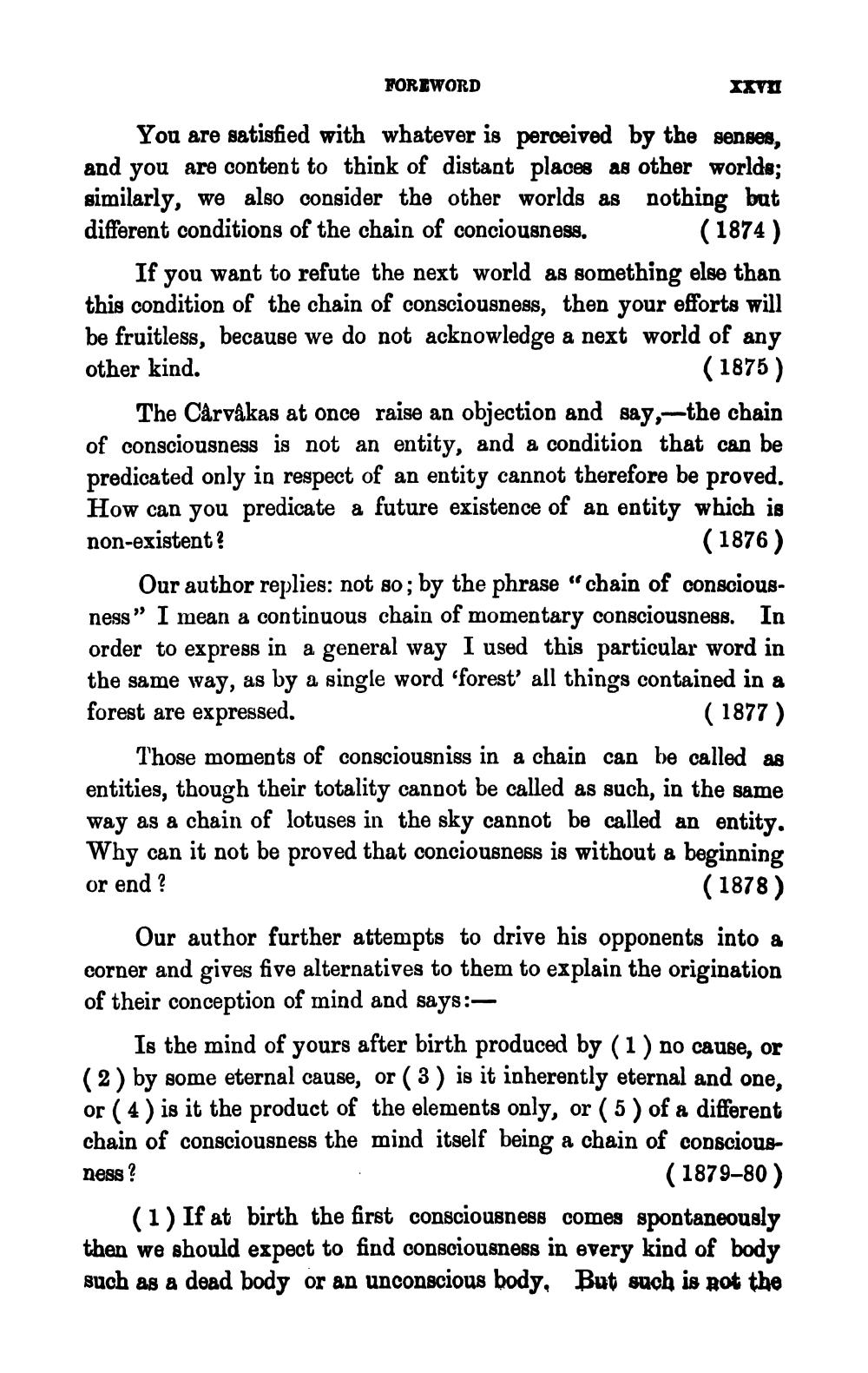________________
FOREWORD
XXVII
You are satisfied with whatever is perceived by the senses, and you are content to think of distant places as other worlds; similarly, we also consider the other worlds as nothing but different conditions of the chain of conciousness. (1874)
If you want to refute the next world as something else than this condition of the chain of consciousness, then your efforts will be fruitless, because we do not acknowledge a next world of any other kind.
(1875) The Cårvåkas at once raise an objection and say, the chain of consciousness is not an entity, and a condition that can be predicated only in respect of an entity cannot therefore be proved. How can you predicate a future existence of an entity which is non-existent?
(1876) Our author replies: not so; by the phrase "chain of consciousness” I mean a continuous chain of momentary consciousness. In order to express in a general way I used this particular word in the same way, as by a single word 'forest all things contained in a forest are expressed.
(1877) Those moments of consciousniss in a chain can be called as entities, though their totality cannot be called as such, in the same way as a chain of lotuses in the sky cannot be called an entity. Why can it not be proved that conciousness is without a beginning or end ?
(1878) Our author further attempts to drive his opponents into a corner and gives five alternatives to them to explain the origination of their conception of mind and says:
Is the mind of yours after birth produced by (1) no cause, or (2) by some eternal cause, or (3) is it inherently eternal and one, or ( 4 ) is it the product of the elements only, or ( 5 ) of a different chain of consciousness the mind itself being a chain of consciousness?
(1879–80) (1) If at birth the first consciousness comes spontaneously then we should expect to find consciousness in every kind of body such as a dead body or an unconscious body, But such is not the




